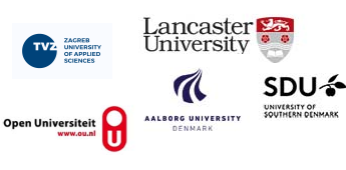

Mapping AI and Education debates: revisiting acquisition and participation metaphors for learning
Rebecca Eynon, Cory Salveson
University of Oxford, Oxford, United Kingdom.
Keywords
Artificial Intelligence, Machine Learning , Topic Modelling, Acquisition, Participation , Education
Abstract
The role of artificial intelligence for learning is again attracting attention in policy and academic fields; a renaissance fuelled in part by the proliferation and availability of big data, alongside advances in computational techniques and the need for a new ‘technical fix’ for Education (Robins and Webster, 1989). In the public domain, dramatic headlines abound proclaiming the end of education as we know it in utopian and dystopian terms. Yet, in the academic sphere important advances are being made that educators need to pay attention to in order to have a more nuanced and ‘responsible response’ (Biesta, 2013) to the role that artificial intelligence can and should play in Education.
This presentation aims to contribute to that goal through reporting findings from an ongoing study that aims to identify and explore academic studies that are concerned with artificial intelligence and Education. Through the use of a number of machine learning techniques we aim to map and visualise the current areas of research in this area and identify the underlying philosophies of learning and education embedded within these activities, drawing on Anna Sfard’s acquisition and participation metaphors for learning (Sfard, 1998).
Through primarily computational analysis (including network analysis and natural language processing) of the citations, titles and abstracts (where available) of around 8500 books, chapters, papers and conference presentations alongside small scale qualitative coding of a sample of papers we highlight the different ways that people define and talk about AI in Education and demonstrate how the vast majority of work in this area is primarily promoting an ‘acquisition’ based view of learning, promoting individual cognition over collaborative, networked forms of participation. We argue that while this is not necessarily a problem as acquisition is an important aspect of learning; discussions of the use of artificial intelligence in Education would be significantly advanced if far more attention was placed on ways of thinking about learning and Education that promote a broader social-cultural view. This would enable more discussion of if, and how, the use of artificial intelligence in Education could advance knowledge in a Network Society alongside the use of artificial intelligence to make knowledge transfer more efficient; and further advance theoretical debates in Networked Learning.
Joint Organising Institutions
Open University of The Netherlands
| Past Conference Proceedings | Contact |